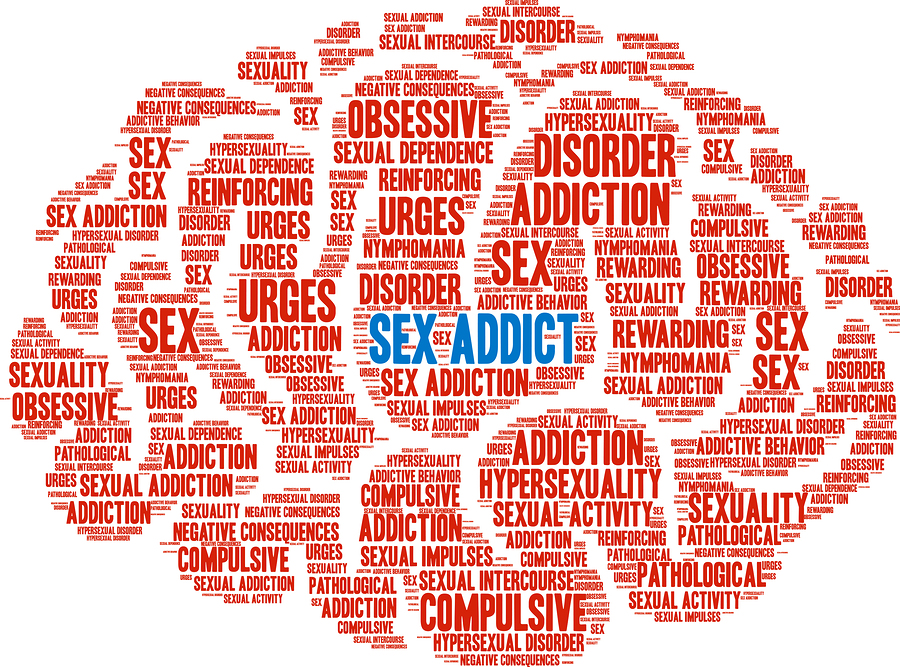 While there is currently no official diagnosis for individuals suffering from sex addiction, mental health professionals report that in their work it's not so unusual to encounter individuals who experience significant disruptions in their functioning because of their hypersexuality.
While there is currently no official diagnosis for individuals suffering from sex addiction, mental health professionals report that in their work it's not so unusual to encounter individuals who experience significant disruptions in their functioning because of their hypersexuality.
History
This is not a new phenomenon. Over the centuries, disruptive hypersexuality has been encountered and documented under a number of different names, such as Don Juanism, satyriasis, nymphomania, excessive sexual drive, sexual addiction, etc. Quite recently, in the fourth edition of the Diagnostic and Statistical Manual of Mental Disorders (DSM -IV), the term Sexual Disorder - Not Otherwise Specified was used to describe these disruptions. This term was applied to situations in which a person experienced "distress about a pattern of repeated sexual relationships involving a succession of lovers who are experienced by the individual only as things to be used." However, this or a similar diagnosis was not included in the most current edition, DSM-V, due to the controversy surrounding proposed criteria. It is currently unclear when hypersexuality becomes disruptive and whether hypersexuality should be viewed as an addiction similar to alcohol and drug addictions.
However, one thing is known, if viewed as such, the concept of hypersexuality may become shameful for people just enjoy having sex with multiple partners. Hence, the controversy surrounding the proposed criteria stems from the difficulties how not to use addiction and moral language when creating official diagnostic criteria, as well as determining the level of disruptions needed to indicate a diagnosis.
Despite the fact there is not an official diagnosis that would describe disruptive hypersexuality, the term "sex addict" and “sex addiction” is commonly used, however, and refers to a individuals who compulsively seek out sexual acts despite negative consequences to self or others. This may be limited to compulsive masturbation, viewing of pornography, or engaging in numerous sexual encounters with different partners, or it can even extend as far as engaging in the illegal sexual behavior.
Causes
While sexuality is normal and healthy part of our life, it can become disruptive when it starts to cause significant distress in various areas of our functioning. However, what is in the basis of these disruptions that cause a significant distress is currently not well understood.
One thing is sure, however, the causes of sexual addiction are complex. Factors such as the history of addiction, biochemical problems, or a history of abuse or trauma consistently appear to play an important role in the creation of the disruptions and, consequently, distress.
Research of other types of addiction has shed some light on the development of sexual addiction, as it seems that the same brain system is involved in these different types of addictions. This indicates that, for example, each encounter with sex or pornography may activate the brain’s reward system.
As a result, we continuously crave these experiences. This in combination with unsuccessful personal relationships, use of sex as a way to divert negative emotions associated with forming bonds with people, and feelings of shame and guilt often cause significant distress and disruptions in functioning.
Furthermore, while many people with sexual addiction have no history of trauma, such as sexual abuse, in their past, some may struggle with the history of trauma that seems to have triggered their sexual addiction. Others may feel their family was void of emotion or distant, while others with sexual addictions are also working through co-occurring addictions to a substance or another behavior, complicating their recovery.
Oftentimes, as individuals with sexual addictions delve into recovery with professional intervention, the underlying causes become more obvious. However, they never seem to be simple.
Associated Behaviours
Sexual addictions can be very different from each other due to the fact that sexual preferences often differ from each other. However, in general, behaviors associated with sexual addiction include behaviours such as:
· Multiple affairs
· Compulsive masturbation
· Sex with strangers or prostitutes
· Prolonged use of pornography
In addition to the disruption these behaviours often cause, there is an additional mental health toll. Individuals addicted to sex rarely experience joy associated with the act itself. Rather, they might feel empty, used, or guilty. Despite experiencing a range of negative emotions, they can engage in sexual acts again, making them also feel powerless over their own behaviour. Therefore, oftentimes, additional clinical symptoms surface, such as symptoms of depression and anxiety.
*Three Quick Questions
Since sex addictions can look different in different people, the Society for the Advancement of Sexual Health recommends asking only three questions in order to determine if someone is experiencing sexual addiction:
Have you lost control over your sexual behavior?
Is the lack of control causing you significant trouble in your life?
Are you thinking about sex when you don’t want to?
If you can answer “yes” to these questions, you’ll benefit from reaching out for help.
Treatments
Given that sexual addiction can develop a combination of a number of different factors, successful treatments are usually the ones that use a multifaceted approach. This is why individual therapy seems to be very successful in treating sexual addiction. A skilled therapist uses the information that individuals seeking help bring into therapy and, together with them, explores the nature of the sexual addiction. Through this professional intervention, the underlying causes become more obvious. Consequently, it also becomes easier to appropriately address them.
Literature:
Society for the Advancement of Sexual Health (SASH) - https://www.sash.net/
About the Author

Hilda Huj
, B.A., M.A. Hilda is a registered clinical counselling and forensic psychologist in Edmonton, Alberta. She specializes in working with youth, adults and families that have been impacted by trauma. She completed a Bachelor of Arts and Master of Arts degree in Psychology in Osijek, Croatia, and subsequently equated her academic credentials to Canadian standards. Currently, she volunteers with the Edmonton Police Services as a Victim Support Worker and also helps to promote Psychology by volunteering for the Psychologists’ Association of Alberta.
Office Location:
Suite 39, 9912 - 106 Street
Edmonton, Alberta
T5K 1C5
Canada
Phone: 7804289223
Contact Hilda Huj
Professional Website:
www.archpsychological.com